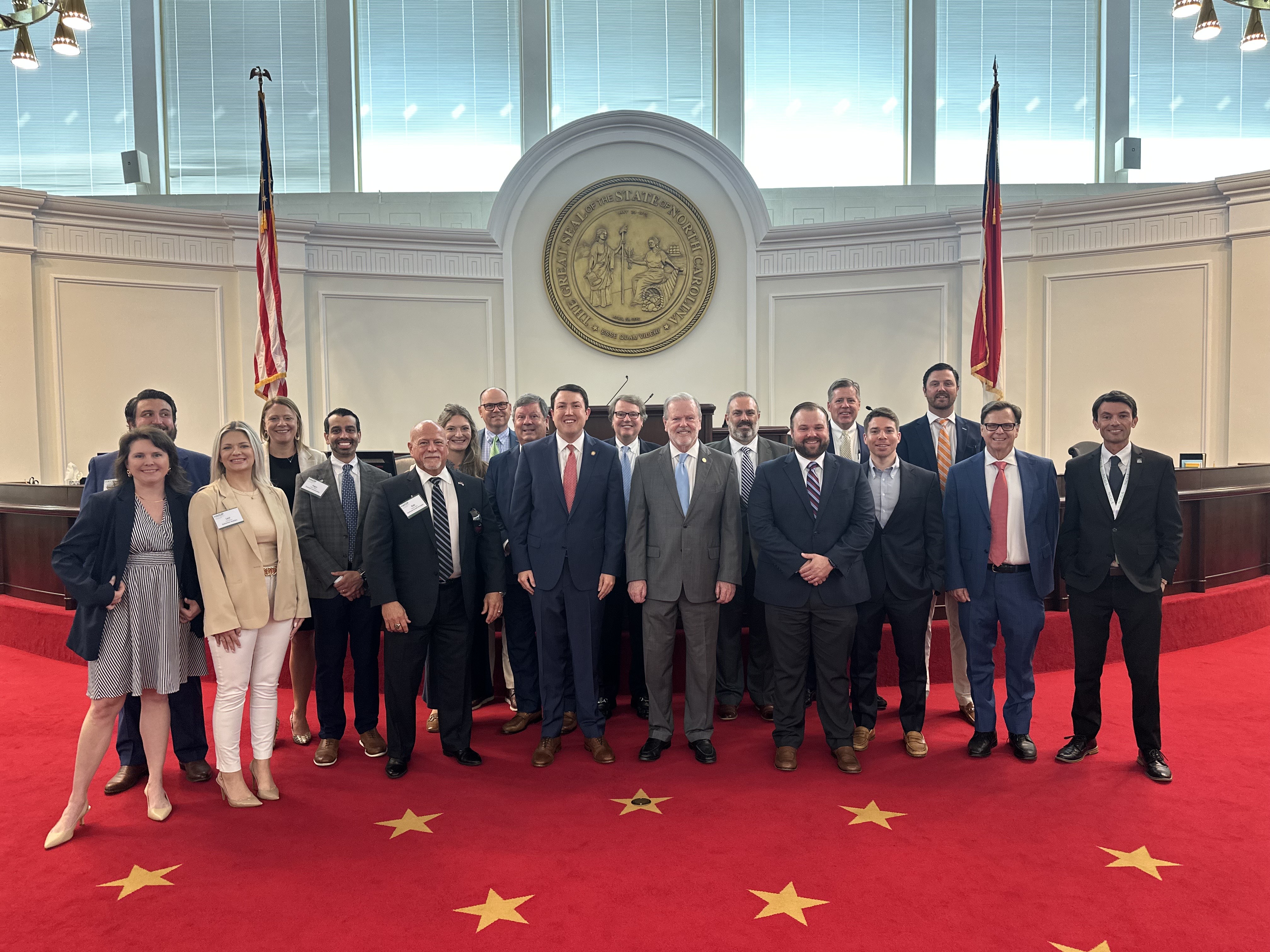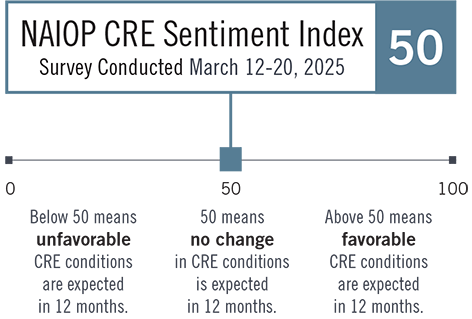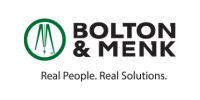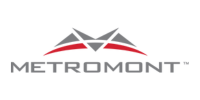
REBIC 2 for Tuesday
|
American Airlines Newsroom. Powering Connections: American Airlines Keeps North Carolina Thriving.
|
Read More

Professional Background
- Current Role & Company: What is your current position, and what does your company specialize in?
My current position at LPC is Vice President of Construction & Development and LPC specializes in commercial real estate services. - Career Path: How did you get started in commercial real estate, and what led you to where you are today?
During the great recession in 2008, I was working for a residential general contractor. When the housing bubble burst, I jumped over to the commercial real estate side and specialized in construction management. - Area of Expertise: What are your key areas of expertise in commercial real estate (e.g., development, brokerage, construction, finance, legal, etc.)?
In my role at LPC, I focus on development and construction but work very closely with our brokerage team, finance team and property management teams. - Notable Projects/Deals: Can you share a project, transaction, or initiative you're particularly proud of?
From 2016 thru present, I have been the development manager for Legacy Union in Uptown Charlotte. I have been involved from due diligence through core and shell completion for BofA Tower, The Deloitte Tower, the SevenTwenty Parking Deck, Honeywell Corporate Headquarters and 600 S. Tryon. These buildings combine for over 2.5 million SF of office and approximately 5,000 parking spaces. - Industry Insights: What's one trend or challenge in commercial real estate that excites or concerns you?
The lack of capital is still a huge challenge for development these days. I am hopeful that the capital markets will further open up but things are progressing a little slower than what I anticipated.
Involvement in NAIOP
Read More
Government Affairs Update: May 2025
The NAIOP Corporate government affairs staff has been busy working with chapters at the state, local, federal and provincial levels to represent the positions of the commercial real estate industry.
Read More
Succession Planning for Commercial Real Estate Firms: Benefits, Best Practices and Common Challenges
|
Preparing and implementing a plan to transfer control of a firm to a new generation of leaders can be a daunting prospect. |
|
Leaders of commercial real estate companies often face additional, unique challenges due to their firms’ complex valuation processes, intricate tax strategies and multifaceted ownership structures. |
Read More
Earlier last week the long-awaited draft language for the first round of a tax bill was released from the House Ways and Means Committee.
For those wanting to dive deeper, here's a comprehensive article that summarizes key components of the current version: [Insights | Elliott Davis | Tax Alert: House Republicans Release First Draft of Tax Bill].
Read More

Congratulations to Our Tournament Winners!

Read More
Apply to Join DSTAC!
The City of Charlotte is committed to providing comprehensive and consistent land development services—including plan reviews and inspections—aligned with our core goals of safety, economic vitality, and environmental stewardship.
To strengthen communication and collaboration within the land development community, we are excited to relaunch the Development Services Technical Advisory Committee (DSTAC).
Read More
Originally published on April 2, 2025, by Jack Hargrove for NAIOP
As state legislatures are convening to begin the next two years of policymaking, many NAIOP chapters around the country are hosting a Day at the Capitol. These events, in which NAIOP owners and developers travel to their state capital to talk policy with their elected representatives, are among the most effective forms of advocacy. If you are interested in hosting a Day at the Capitol in your state, the examples below provide you with models for how to begin.
Read More
Jon Phillips is a connector, a strategist, and a believer in smarter growth. As a partner at Selwyn Property Group, Jon focuses on industrial development and acquisitions, helping shape commercial real estate across the Southeast.
His path? A mix of construction and finance led him to invest in and work on award-winning projects, such as the FedEx development in Redmond, WA.
- Insight: “Onshoring in manufacturing is gaining momentum and transforming industrial markets.”
- NAIOP Involvement: Jon’s been an active board and committee member for 5 years.
- Why it matters: “The ability to influence policy and expand my network has been invaluable.”
- Top Pick: Emotional Intelligence by Daniel Goleman
- Recharge Mode: Cycling and strumming on his guitar.
- Words to Work By: “Work to live; don’t live to work.”
Connect With Jon on LinkedIn
2 for Tuesday | Transportation Senate Bills Progressing | HB765 Continues Forward!
-
Transportation Legislation On the Move
The positive movement in Raleigh on the Mecklenburg County transportation front is continuing its forward momentum. Two Senate bills, SB 145 and SB 584, were introduced in March and April. And now a companion measure, HB 984, has been introduced by Representative Tricia Cotham. REBIC applauds the forward-thinking legislation that has been filed, continuing the critical momentum needed to expand Mecklenburg County’s transportation system. House Bill 948, Projects for Advancing Vehicle-infrastructure Enhancements (The PAVE Act), would allow voters in Mecklenburg County to support smart investments that would shape a brighter future for the city, county, and every town in Mecklenburg County.
Read More
The Trump administration’s tariff policy has unfolded rapidly and continues to evolve. Although the highest tariff rates on most U.S. trading partners have been paused for 90 days to allow time for trade negotiations, a flat 10% tariff remains in effect on most goods, and additional tariffs are expected on electronics, semiconductors, and pharmaceuticals. When combined with previously announced tariffs on steel and aluminum, as well as the 145% tariff on most goods from China, the average effective tariff rate is the highest in over a century. The dollar has declined in response to the tariff announcements, which have increased the effective cost of imported goods further.
Much remains uncertain about where tariff rates will settle and just how disruptive they will be to the U.S. economy, but what we already know about the tariffs and other trade restrictions that have been announced allows for at least an initial outline of the potential risks they pose to the economy and the market for industrial real estate. The announced tariffs have been higher than most economists expected and are high enough to have a significant effect on supply chains, business decisions, and consumer behavior.
Read More
Charlotte Planning Dept Files New UDO Text Amendment
Today, the Charlotte Planning Department will file a text amendment that will likely be taken up by the full Council for consideration in early June. The current schedule is as follows:- May 8 & 13 - Info Sessions
- May 19 - City Council Hearing
- June 3 - Presentation to Transportation, Planning & Development Committee
- June 16 - City Council Vote
- Additional flexibility for projects containing multiple frontages
- Changes to the Research Campus zoning district addressing market conditions
- New affordable housing provisions aimed at shortening the approval process and providing greater flexibility
- Clarification on stormwater requirements
- More flexibility on certain landscaping regulations
- Changes to provide more certainty and clarity on trees
Originally published by NAIOP Research and Publication, Spring 2025

Read More
City of Charlotte Seeking Feedback on #1 Area Plans and #2 Policy Map.
The City of Charlotte Planning, Design & Development Department has recently released the much-anticipated 14 Draft Community Area Plans. These plans are pivotal components in implementing the Charlotte Future 2040 Comprehensive Plan while providing more detailed recommendations for shaping the built environment and addressing factors such as land use, urban design, transportation, and infrastructure. What’s included?- 14 Community Area Plans with detailed development recommendations for each area.
- A Program Guide that connects these plans to other citywide policies.
- And a Revised Policy Map & Manual reflecting the community’s latest feedback.
WAYS TO REVIEW & PROVIDE FEEDBACK
- Visit the Virtual Open House for an overview of the planning process and key recommendations.
- Read the Draft Plans and share your comments.
- Sign up for Office Hours throughout April 2025, where community members can meet with staff to ask questions or provide their feedback on the draft plans.
- Visit your Local Library to review hard copies of the draft plans.
Locations include:
- Hickory Grove
- Sugar Creek
- West Boulevard
- Allegra Westbrooks Regional
- Mountain Island
- South Boulevard
- Steele Creek
- Independence Regional
- Myers Park
- SouthPark Regional
- South County Regional
- University City Regional
City staff are available to attend community meetings upon request. Please note that scheduling is based upon staff availability.
To request a meeting, please email [email protected] and include:
Read More
NAIOP is partnering with RCLCO | CEL Compensation Advisors to conduct the 2025 Commercial Real Estate Compensation and Benefits Survey. A nationally known real estate advisor, RCLCO | CEL Compensation Advisors, has conducted this survey — the largest in the industry — for 36 consecutive years.
Complete This Survey by June 6
Please note: If your company participated in a recent survey, the prior participants will be sent an email directly from Andrea Schell at RCLCO with a unique link for your company to complete the current survey. No need to sign up again to participate.
Read More
Originally published in NAIOP Development Magazine's Spring Issue
The promise of functional AI has added complexity and urgency to the delivery of data centers.
Since 1992, Ryan Companies has built mission-critical data centers. Currently, the company is building or developing more than $5 billion in data center projects across the United States. Todd Johnson, director of real estate development for Ryan’s mission-critical sector, recently sat down for an interview to discuss the complexities of this fast-growing area of specialization.
Read More
Developing Leaders Award
NAIOP proudly presents the annual Developing Leaders Award, honoring up-and-coming commercial real estate professionals, 35 years of age and under, for their valued contributions and commitment to the industry. The Developing Leaders Award is presented to recipients who have shown exemplary achievements and demonstrated outstanding professional accomplishments in the commercial real estate industry.
Each applicant must be a member of NAIOP in good standing and will be selected based on the following criteria: leadership, professional competency, career goals, NAIOP participation, and community involvement.
Read More
Two-for-Tuesday | Comments Sought on Land Development Standards Manual | BOI Reporting Details Narrowed - An NAHB and NAR Win!
- Charlotte Seeking Comments on Land Development Standards Manual
The Charlotte Land Development Standards Manual (CLDSM) Committee proposes various revisions to the Charlotte Land Development Standards Manual (CLDSM). Below is a document containing the Draft text details for public review and comment:
2025 CLDSM Update-DraftPlease review the CLDSM draft detail packet and email [email protected] with any questions, feedback, or comments on the proposed changes by July 1, 2025.
Read More
Two-for-Tuesday | Charlotte Reels as SB428 Clamps Down on IBT Request | CATS Round 2 Survey Needs Your Comments
- Senate Bill 428 Seeks to Alter Future Water Transfers Dramatically
A trio of state senators are trying to clamp down on Charlotte’s quest to gain a larger share of the Catawba River’s water.
Filed Monday, Senate Bill 428 would alter the state’s interbasin transfer law to create a new “major transfer” category and subject it to stricter rules.

















































